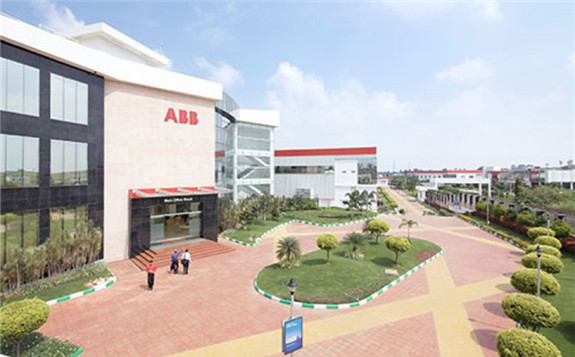 Contacted by PV Tech earlier this month, ABB spokesperson Daniel Smith linked the firm's exit from inverter business to "falling demand globally" for these devices (Credit: ABB Group)
Contacted by PV Tech earlier this month, ABB spokesperson Daniel Smith linked the firm's exit from inverter business to "falling demand globally" for these devices (Credit: ABB Group) ABB has seen one of its key financial indicators nosedive after taking a significant hit in return for offloading an under-pressure PV inverter subsidiary.
Figures released by the Swiss group on Thursday reveal a net income of US$64 million throughout Q2 2019, a 91% plunge compared to the US$681 million posted for the same quarter last year.
The drop emerged even as ABB reported growth on other fronts including orders and revenues, which rose in Q2 2019 to around US$7.4 billion and US$7.1 billion, respectively.
The net income fall was linked, ABB said, to downturns in its Robotics and Discrete Automation units, as well as the financial hit it faced in return for exiting the solar inverter business.
In early July, the Zurich-headquartered group agreed to pay US$470 million in return for offloading its inverter unit to FIMER, an Italian group that also manufactures the devices.
According to this week’s results, US$455 million of the total was already absorbed by ABB during Q2 2018. The transaction is not expected to fully close until Q1 2020, the firm explained.
The divestment of its solar inverter unit should, ABB calculates, improve the operational EBITA margin of the Electrification division by 50 basis points, helping progress towards a target of 15-19% margins.
“We are making good progress with the carve-out of our Power Grids business, the integration of GEIS and the roll-out of our ABB-OS operating model, which all are planned to make ABB more profitable,” the firm’s CFO Timo Ihamuotila said as the Q2 2019 results were released.
Contacted by PV Tech earlier this month, ABB spokesperson Daniel Smith declined to shed light on the profitability of its sold inverter unit, describing it however as a “drag” for the margins of the broader Electrification division.
Asked at the time for the rationale of ABB’s retreat from solar inverters, Smith said the unit’s revenue decline reflects “falling demand globally” for these devices, after the market peak in 2012.
“At the same time, new entrants from China has led to severe price pressure,” the spokesperson added.